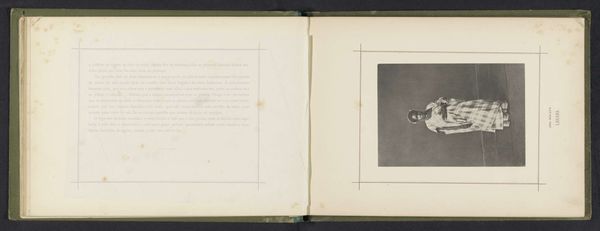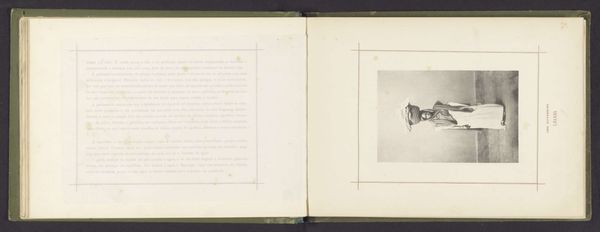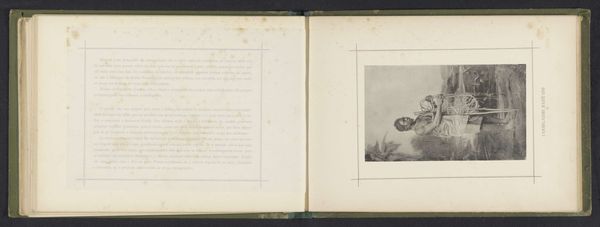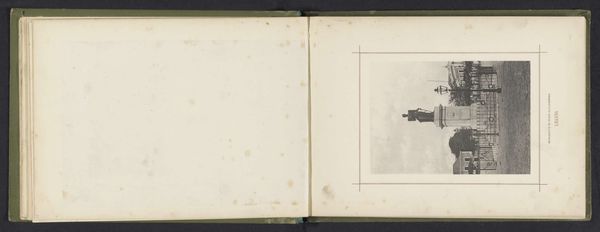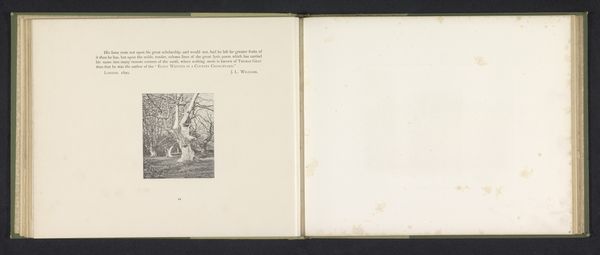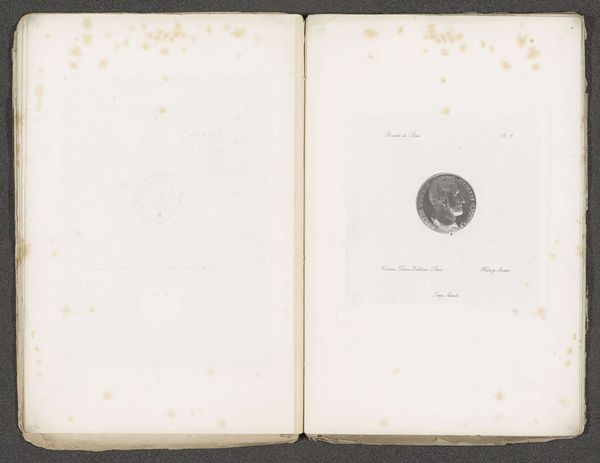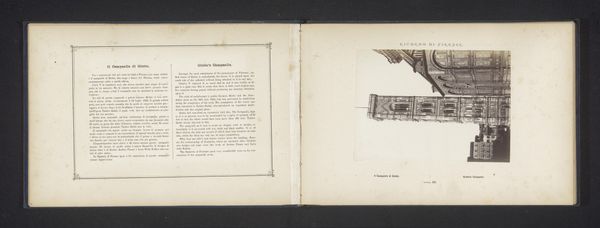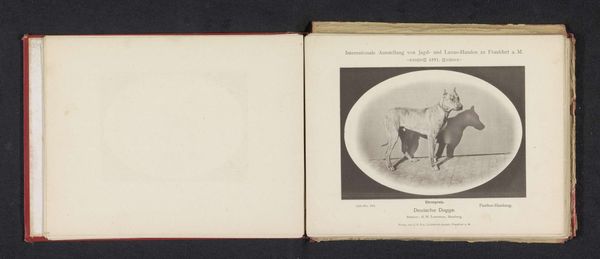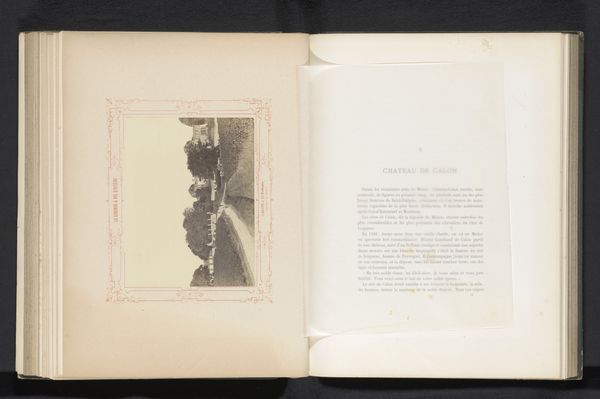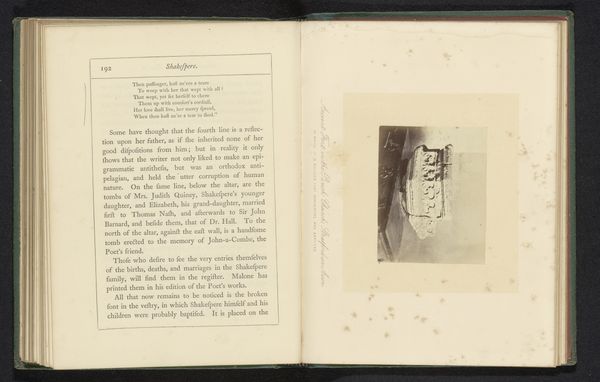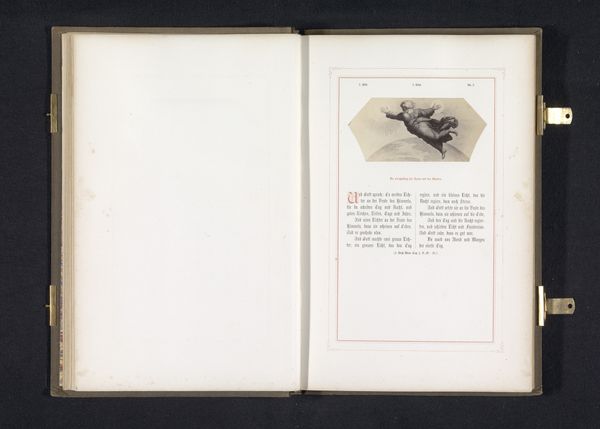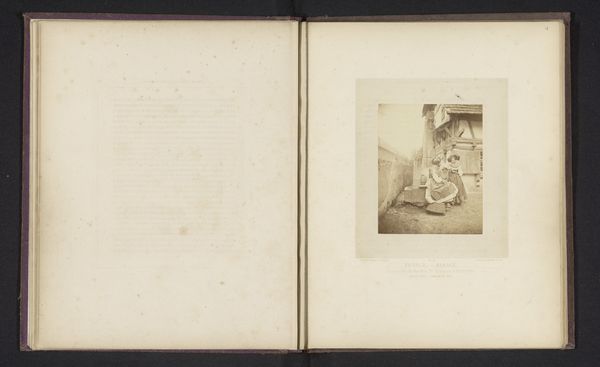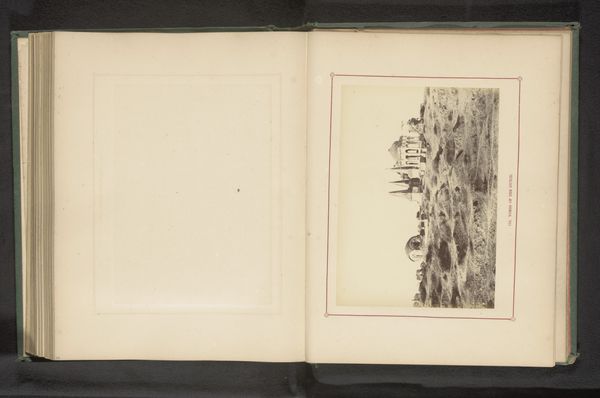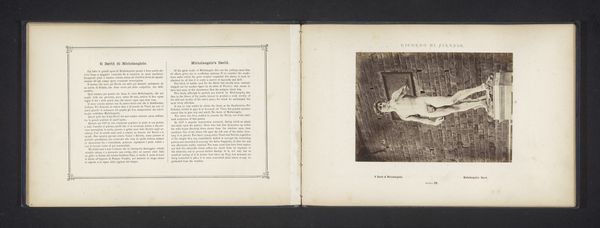
drawing, paper, pencil
#
drawing
#
sketch book
#
landscape
#
figuration
#
paper
#
pencil
#
realism
Dimensions: height 147 mm, width 103 mm
Copyright: Rijks Museum: Open Domain
Editor: Here we have "Woman with an Oil Jug on Her Back", a pencil drawing on paper by José Augusto da Cunha Moraes, made sometime before 1886. It looks like a page from a sketchbook. I am struck by the stark realism of the woman laboring with this heavy load, and also by the very clear sense of the artist's hand, showing the precise control with pencil. What can you tell us about this image? Curator: Focusing on the drawing itself, note the texture created through the artist's technique. Consider the pencil strokes—how they build form, suggest weight, and capture the effects of light on the oil jug. Does the apparent ease of this sketch belie a larger socio-economic context of labor and resources in 19th-century production? How might the materiality of paper and pencil, seemingly simple, actually serve to either democratize or reinforce hierarchies within art and society? Editor: I guess the “sketchiness” allows access to the art, by appearing unfinished? But doesn’t it also gloss over what I imagine must have been grueling labor? Curator: Precisely. Consider also that sketchbooks are commodities too. Who has access to the means of artistic production—paper, pencil, training? How is the depiction of labor consumed by different audiences? Editor: So you're asking us to think about the material realities, not just within the image, but outside it, connecting them. That the sketch’s quick lines may reflect the slow and grueling realities of labor itself. Curator: Exactly. Perhaps appreciating this image lies in understanding the networks of making and unmaking through materiality and labor. Editor: I see your point. Thanks, this really opened up my thinking about how art exists in the real world.
Comments
No comments
Be the first to comment and join the conversation on the ultimate creative platform.
